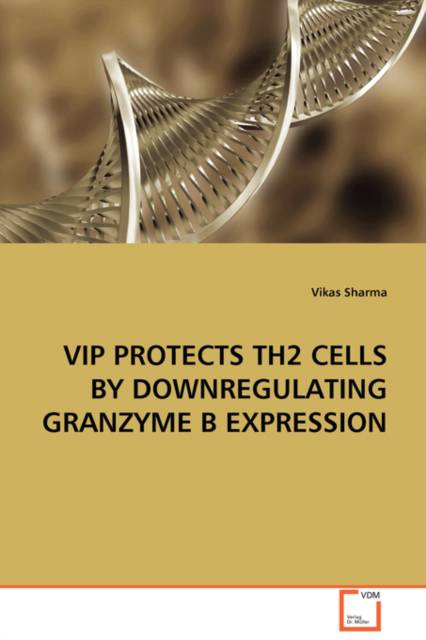
- Afhalen na 1 uur in een winkel met voorraad
- Gratis thuislevering in België vanaf € 30
- Ruim aanbod met 7 miljoen producten
- Afhalen na 1 uur in een winkel met voorraad
- Gratis thuislevering in België vanaf € 30
- Ruim aanbod met 7 miljoen producten
Zoeken
€ 58,45
+ 116 punten
Omschrijving
Following antigenic stimulation, CD4+ T cells
differentiate into Th1 and Th2 effectors, with
different cytokine profiles and different
physiological functions. However, regardless of the
initial Th1/Th2 balance, the final immune response
depends to a large degree on the regulation of Th1 or
Th2 survival under specific conditions.
The major purpose of this thesis was to identify and
characterize the molecular mechanisms for the
protective effect of VIP on Th2 effectors in an in
vitro system. Our experiments revealed a surprising
new mechanism involved in Th1/Th2 AICD, i.e. the
induction of enzymatically active granzyme B (GrB)
upon T cell receptor restimulation. In wild-type Th1
and Th2 cells, apoptosis is mediated through both Fas
signaling and GrB induction. In lpr (Fas mutant) Th1
and Th2 effectors T cell receptor restimulation
results in apoptosis mediated solely by GrB,
suggesting that GrB induction is independent of Fas
signaling. VIP induces the survival of wild-type Th2
effectors by preventing the induction of GrB and the
upregulation of FasL expression in Th2, but not Th1
cells.
differentiate into Th1 and Th2 effectors, with
different cytokine profiles and different
physiological functions. However, regardless of the
initial Th1/Th2 balance, the final immune response
depends to a large degree on the regulation of Th1 or
Th2 survival under specific conditions.
The major purpose of this thesis was to identify and
characterize the molecular mechanisms for the
protective effect of VIP on Th2 effectors in an in
vitro system. Our experiments revealed a surprising
new mechanism involved in Th1/Th2 AICD, i.e. the
induction of enzymatically active granzyme B (GrB)
upon T cell receptor restimulation. In wild-type Th1
and Th2 cells, apoptosis is mediated through both Fas
signaling and GrB induction. In lpr (Fas mutant) Th1
and Th2 effectors T cell receptor restimulation
results in apoptosis mediated solely by GrB,
suggesting that GrB induction is independent of Fas
signaling. VIP induces the survival of wild-type Th2
effectors by preventing the induction of GrB and the
upregulation of FasL expression in Th2, but not Th1
cells.
Specificaties
Betrokkenen
- Auteur(s):
- Uitgeverij:
Inhoud
- Aantal bladzijden:
- 132
- Taal:
- Engels
Eigenschappen
- Productcode (EAN):
- 9783836488259
- Verschijningsdatum:
- 28/11/2008
- Uitvoering:
- Paperback
- Formaat:
- Trade paperback (VS)
- Afmetingen:
- 152 mm x 229 mm
- Gewicht:
- 185 g

Alleen bij Standaard Boekhandel
+ 116 punten op je klantenkaart van Standaard Boekhandel
Beoordelingen
We publiceren alleen reviews die voldoen aan de voorwaarden voor reviews. Bekijk onze voorwaarden voor reviews.











